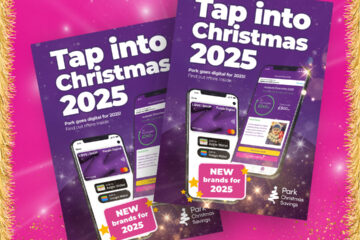6 WAYS MUSIC CAN IMPROVE OUR WELLBEING
 By music therapist Dr Stella Compton Dickinson
By music therapist Dr Stella Compton Dickinson
It is rare to have absolute silence. Music is all around us, it is made up of vibrations of different frequencies, heard in the sounds of nature, the sea, the birds, even the electrical sound of the fridge has a frequency that hums. Within the universe, the musical elements of ‘time’ and ‘rhythm’ are involved in, for example, how the earth and the moon interact with the cycle of the tides, day, night and month. These rhythms and energies may affect our bodies; for example, women often feel more full and bloated at full moon.
In eastern philosophy the mystery of the beginning of all life is understood as starting when a single vibration began, to which there was a response thus creating a resonance. People may either ‘resonate’ in harmony with each other or grate on each other’s nerves. The way people interact with each other is called the ‘psychodynamics’. Music has dynamics too, meaning whether it is loud (and scary or emboldening) or soft (and gentle or tremulous) or anything in between.
1.How just listening to music makes us feel calmer
Music is an art form available to almost every human being. Anyone can explore safe and appropriate ways in which music can lift their mood. In public places, such as certain London Underground Stations, classical music is played to enhance a calm mood across a busy, crowded environment where people might otherwise get stressed and then become more aggressive. Healthcare practitioners frequently use music to stimulate a better ambient mood, for example in a secure hospital unit, however the same piece of music will affect individuals in different ways.
2.Music, memory and life review
 Pre-recorded music has associations to times and places in our lives. If we hear a song from a different time in our life it can bring back all those old feelings. It may be very romantic, sad, happy or funny. Music can make us feel nostalgic and it can therefore make us laugh or cry, feel warm and loving or uncomfortable and full of regret.
Pre-recorded music has associations to times and places in our lives. If we hear a song from a different time in our life it can bring back all those old feelings. It may be very romantic, sad, happy or funny. Music can make us feel nostalgic and it can therefore make us laugh or cry, feel warm and loving or uncomfortable and full of regret.
When we work therapeutically with recorded music it is important to understand the client’s taste and let him choose music that has significant meaning to him, rather than imposing a personal choice that may mean nothing to him, this may otherwise simply be perceived as controlling.
When working with elderly people, if they hear a favourite old song this can bring back happier times and they can then often recall the lyrics which may not have been thought about in ages – then the individual can enjoy sharing their memories. This is important in helping the individual to have a sense of continuity across their life-span and then to orientate them to all that they have done decade by decade.
3.Music to reduce anxiety
Whether music is played on a hospital ward, in a Zumba class, a Pilates class, a religious ceremony, or a military cavalcade with men and horses – music underpins the movements and pace of events through the tempo, rhythms, mood and harmonies.
Running and exercise releases endorphins that are known as ‘happy’ hormones. A play list of suitable tracks can energize and then calm people, for example during physical exercise classes followed by relaxation and meditative music to finish.
 4. What’s on your playlist? Music and exercise
4. What’s on your playlist? Music and exercise
I always encourage my clients to develop a varied exercise routine because using our bodies can calm our minds, improve co-ordination and balance and reduce the symptoms of anxiety. Without physical activity one’s thoughts and worried feelings may get caught up and these can start to fester inside us. These experiences need an appropriate outlet or otherwise they can make one feel sick or wobbly.
Often this sort of mental difficulty of anxiously avoiding difficult social events for example, can be misunderstood as simply a digestive or eating problem. This sort of anxiety is unprocessed energy, which can be expended in music therapy because clients move about the room to play drums or tuned percussion or smaller instruments, rather than just sitting in a chair. Moving and being creative can help people to extend themselves and to be more spontaneous in having fun, and then they frequently want to start to understand themselves better.
Music Therapy is used to help people who suffer with Parkinson Disease. Try singing a gentle tune if you need to help a person with Parkinson’s to walk. The chances are that their shuffling gait may extend towards becoming proper steps if you find a suitable mood, tempo and tune.
Music can also be used in a manipulative and negative way to whip up a fanatical group consciousness in a crowd, as if they have lost their individual will to choose. Alternatively, to bond together such as at a football match, when part of the crowd may start to act as one in chanting for their team.
5.Learning a Musical Instrument for global mental improvements
Practising a musical instrument is associated with enhanced verbal ability, the ability to work things out and improved motor co-ordination. This is because a lot of components and hours of discipline are involved in becoming accomplished on an instrument. The degree of success depends on many factors including the teaching techniques, the levels of parental support for the child, or for an adult learner to have both a witness to his efforts as well as undisturbed practice time. I have taught my instrument, the oboe, all my adult life and I apply some neuro-scientific therapeutic principles to this teaching.
Let me tell you the story of Irvine (not his real name). Irvine was eleven and had just scraped into the school where I taught. He had tried the drums at primary school and this had done nothing for him. A child needs to find the right quality of tone in choosing his instrument. Irvine was an unusual and sensitive child, he didn’t seem to have a sense of rhythm, and so I worked to instil a steady pace
Learn more here about music therapy and the work of Dr Stella Compton Dickinson
Web: http://www.stellacompton.co.uk
Facebook: https://www.facebook.com/NorthLondonPsychotherapy
Twitter: https://twitter.com/StellaCompton12
LinkedIn: https://www.linkedin.com/in/dr-stella-compton-dickinson-4a475311/














